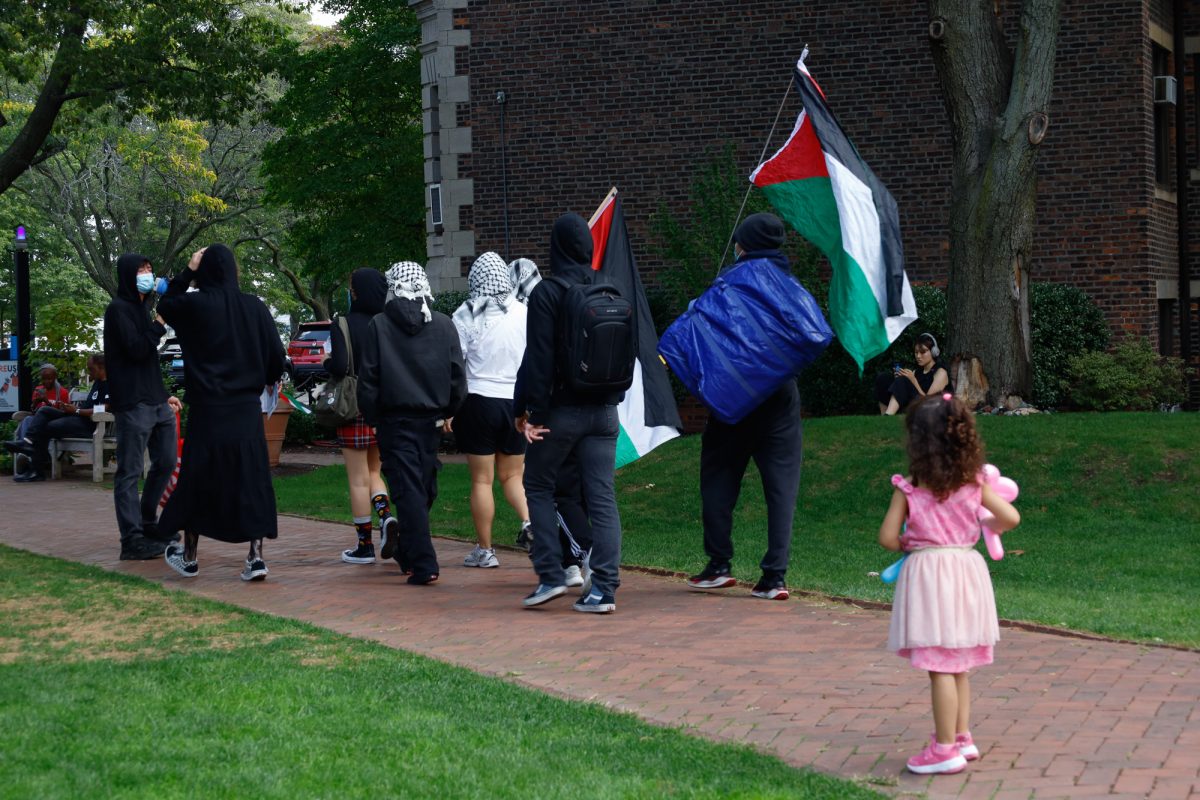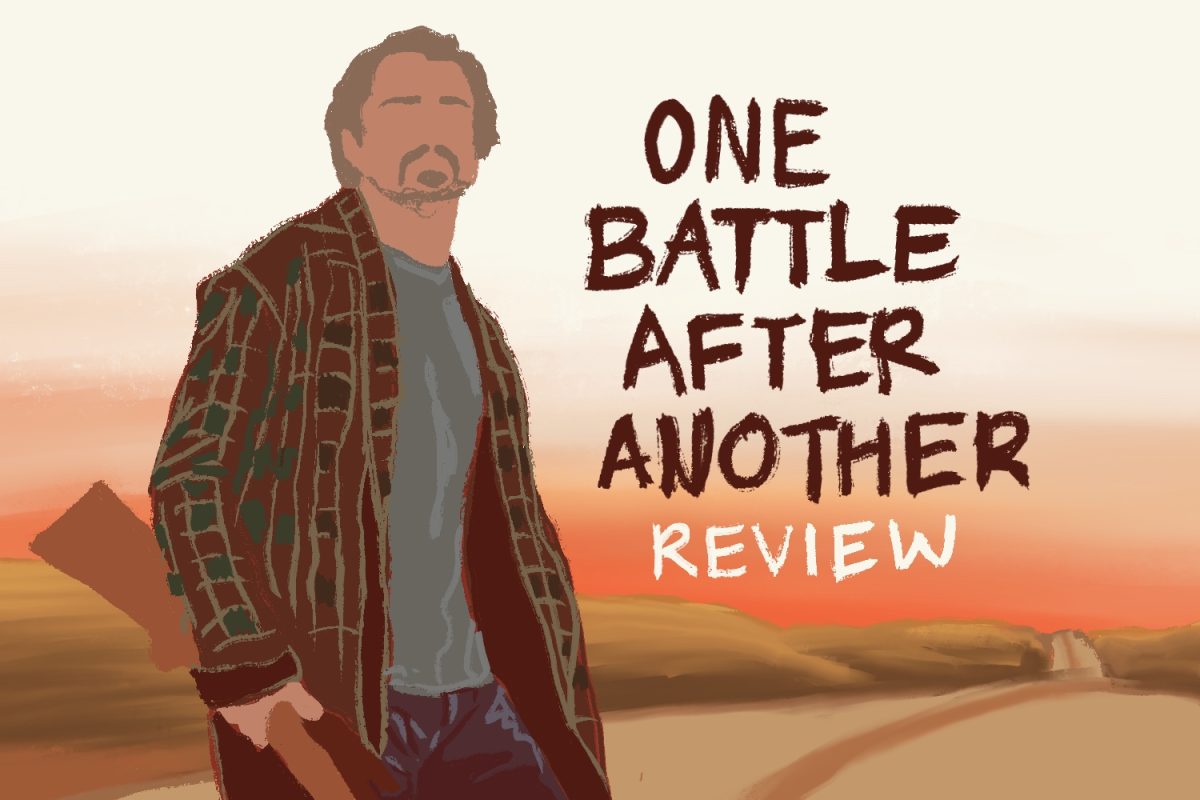Dear Abby: I want to ask my boyfriend about whether or not he wants kids. But we’re both still in college … is that weird? I know for a fact I don’t want any as of right now, and maybe I’ll change my mind. But what if he does? Is it wrong to ask now?
Let’s just cut to the chase: You might still be in college, but that doesn’t mean it’s too early to talk about whether or not you want to have kids.
Yes, really.
I know, I know — most of you are still trying to figure out how to pass your midterms or split rent three ways in a crumbling off-campus apartment. You’re probably not picturing yourself pushing a stroller around a cul-de-sac or fighting with a toddler over Cocomelon.
But if you’re in a long-term, serious relationship — and especially if you’re sexually active — it’s not too wild to start asking the bigger, scarier, more adult questions.
It’s important to question your partner: Do you actually want kids? And if so, when?
But despite the question’s importance, I couldn’t help but wonder: Why is this still such an unspoken subject? And is it wrong to align your family goals early?
It feels taboo, right?
Bringing up the “kids question” in your early 20s feels like skipping 10 levels ahead in a relationship. There’s this unspoken rule: Don’t bring up babies unless you’re 30, married or pregnant. But that rule? It’s outdated.
This isn’t the 1960s. Women aren’t getting married at 18 and pregnant by 19. In fact, education has flipped the script. Woman are pursuing degrees, building careers, traveling, healing and exploring what we want — with or without kids.
Education has played a significant role in both the declining birth rate and the increased age of first birth. The median age at first birth rose from 21.3 years in 1969 to 24.4 years in 1994. In 2023, it was listed as 27.5 years old.
This isn’t just a trend — it’s a shift in cultural priorities. But here’s the twist: Even as people are waiting longer to have children, we’re still not talking about whether we want them at all.
What’s really at stake in the child-free conversation
Let’s say you’re in a committed college relationship. You’re sexually active, using some kind of contraception and maybe even joking about “our future kids” or “if we ever got married …”
Cool. But have you actually asked each other, “Do you want kids someday?” And more importantly, “Do you not want kids?”
It actually matters, believe it or not.
Clarity is a great way to avoid future heartbreak. If one of you is 100% child-free for life, and the other assumes parenthood is a given, that’s a ticking time bomb.
Your values also might change. You’re both still growing, but starting the conversation early helps you track how you evolve together — or don’t.
And if you think about it, a lot of us are already making decisions about reproduction. Every time you choose birth control, you’re participating in the larger conversation around fertility, even if it’s just to avoid it for now.
Consider politics
Here’s the contradiction: As I mentioned before, many college students in serious relationships are actively preventing pregnancy. They’re using birth control, tracking cycles and making deliberate choices to avoid becoming parents right now.
But the fact that we’re using contraception doesn’t necessarily mean we want children later. And very few of us are asking that question explicitly — to ourselves or to our partners.
In today’s political climate, that silence is dangerous.
Reproductive rights are under increasing pressure — from abortion bans to restricted access to contraception and IVF. In this environment, deciding when and if you want children is not just a personal matter. It’s a political one.
The earlier you clarify your stance, the more empowered you are to make decisions that align with your values.

How to start ‘The Talk’ — without making it weird
If you’re in a long-term relationship or heading that way, now is the time to open the dialogue —not because you need to lock in a life plan by 22, but because compatibility goes deeper than playlists, politics or even sex.
Here’s how to bring it up — without pressure.
Start soft and ask outright when the timing feels right. Ask a hypothetical question like, “Have you ever thought about whether you want to have kids someday?”
You can still keep things phrased as curious rather than confrontational because, really, you’re not testing your partner. You’re opening space for honesty — not demanding answers.
Share with them where you’re at in the moment, but also acknowledge you’d be open to revisiting as you grow and change your mind. You’re only being transparent about where you are now.
Choosing not to have children isn’t selfish — it’s intentional
The child-free path is still stigmatized in 2025. People who say “I don’t want kids” are often met with disbelief, pity or — worse — pressure.
But choosing not to become a parent isn’t selfish or immature. It can be thoughtful, responsible and rooted in deeply personal reasoning: financial freedom, climate anxiety, mental health, career goals or simply not feeling called to raise a child.
The same is true for those who do want children someday. That choice also deserves respect and planning.
What’s harmful is the assumption that everyone wants the same thing — or that nobody needs to think about it until their 30s. That’s how people end up in relationships that look aligned on the surface but break down over fundamental differences.
Don’t wait, just ask
You don’t need a wedding date or a five-year plan to start talking about kids. All you need is honesty.
Being in college doesn’t mean you’re too young to ask serious questions. In fact, now might be the perfect time — before careers, leases and other life choices become intertwined — to ask yourself and your partner what you actually want.
So whether you dream of a full house or a child-free future, talk about it — out loud and without shame. Because the only thing more awkward than having the conversation now is realizing too late that you never had it at all.


















































































































